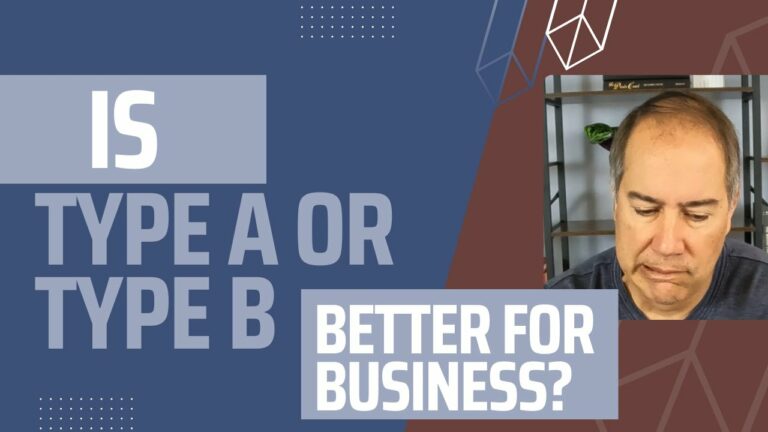Common Tax Deductions for Small Business Owners
They say that knowledge is power, but in the world of taxes, it’s more like knowledge is money!
Take it from us. As professional accountants, we’ve seen small business owners lose out on thousands of dollars in tax breaks because they didn’t know they could deduct certain expenses.
We don’t want to see that happen to you, which is why we wrote this article. If you can invest the next 10 minutes into learning about common tax deductions for small business owners, we promise that the knowledge you gain (and the money you save!) will be well worth your time.
What is a Tax Deduction?
In simple terms, a tax deduction reduces an individual or organization’s income, thereby decreasing the amount of taxes one owes. In the next section, we’ll give you an example of how tax deductions play out in the real world.
Tax Deduction Savings
Let’s say you earn $80,000 per year and are eligible to claim $10,000 in tax deductions. That means you’re only responsible for paying taxes on $70,000 worth of income. If your effective tax rate is 20%, then that $10,000 tax deduction will save you $2,000.
Not bad, eh?
Tax Deductions for Small Business Owners
Now let’s go over some of the most common tax deductions for small business owners so you can start saving!
1. Home Office
If your home doubles as your office, you can deduct a portion of your housing expenses. To calculate those costs, you’ll need to use one of two formulas.
The first formula, called the simplified method, allows you to deduct $5 per square foot of your home that is used for business (up to a maximum of 300 square feet).
The second formula, called the standard method, requires you to track each individual expense that is essential to the upkeep of your home, including mortgage or rent payments, property taxes, homeowners association fees, and utilities. You then multiply those costs by the percentage of your home that is dedicated to business use.
But before you start crunching numbers, make sure you are eligible to take this deduction first. The IRS has strict rules regarding what qualifies as a home office. Click here to learn more.
2. Advertising and Marketing
It’s a good thing the money you spend promoting your products and/or services is 100% tax deductible, given that the U.S. Small Business Administration (SBA) recommends putting 7 to 8 percent of your gross revenue towards advertising and marketing.
Everything from printing business cards to launching a new website to sponsoring an event—all of it’s tax deductible, so make sure you track these expenses!
3. Office Supplies
Paper clips, sticky notes, envelopes, stamps. These are some of the items that immediately come to mind when office supplies are mentioned, but other, more expensive equipment also falls within this category. Think computers, printers, and software.
4. Vehicle Use
If you have a separate vehicle that is strictly for doing business, then you can deduct the full cost of operating that vehicle. However, if you use your vehicle for both personal and business trips, you can only deduct the costs you incurred while conducting business.
When it comes to calculating vehicle use deductions, you have two options: you can either use the standard mileage rate or use the actual expense method.
For the standard mileage rate, you simply multiply the miles driven for business trips during the year by the standard mileage rate. In 2020, the standard mileage deduction rate was $0.57½ per mile. In 2021, it decreased slightly to $0.56 per mile.
If you choose to go the actual expense method route, you individually track all the costs of operating the vehicle for a year, including lease payments, registration fees, insurance, gas, oil, tires, and repairs. Then, you multiply those costs by the percentage of miles driven during business trips.
If you live in an expensive state, you are generally better off using actual costs, since the miles average is a national number and if you pay more for gas, insurance, repairs, etc. you may be losing out using the per mile figure. On the other hand, if you live where it’s less expensive, you may do better using the per mile allowance.
No matter which formula you choose, you will have to track your business miles regardless. That’s why we recommend adopting a system to do so, whether than be an app, a mileage log, or some other form of documentation. In addition to miles driven, make sure you note the time, place, and purpose of your trip.
One quick note before we move on: you cannot deduct the miles driven from your home to your office or place of work. That’s classified as personal commuting expenses.
5. Travel Expenses
Going on a business trip? You can deduct all your travel expenses so long as the trip is ordinary, necessary, and away from your tax home (your tax home is considered the entire city or area where you do business, not your personal residence). In order to qualify as a business trip, you need to travel away from your tax home for longer than an average day’s work, making it necessary to rest or sleep en route.
Examples of deductible business travel expenses include flights, taxis, hotels, car rentals, and parking fees. As with anything else, just make sure you keep a record of some sort that shows expense amounts, date/time of travel, purpose of the trip, and who you met with.
6. Employee Salaries and Benefits
Did you know that the average business spends between 40 to 80 percent of their operating budget on employee salaries and benefits? And did you also know that employee salaries, benefits, and even vacation time are generally tax deductible? Well, now you do!
7. Legal and Professional Fees
From lawyers to accountants to online tax filing services like ours—all of it is tax deductible, so take full advantage of it!
8. Phone and Internet Expenses
Phone and internet expenses are fully deductible so long as you’re using them for the sole purpose of conducting business. If, however, you’re using them for personal reasons as well (as is the case with many work-from-home entrepreneurs) you can only deduct the percentage allocable to business operations. Make sure you keep an itemized bill or other detailed records to prove the amount of business usage should the IRS come knocking.
9. Repairs
Leaky ceilings and broken windows can really put a damper on your day. But as they say, every cloud has a silver lining. In this case, you get to write these costs off on your taxes. Any repair you pay for at your business location can be a deduction.
10. Business Meals
Good news, foodies! You can deduct 50% of food and beverage costs so long as they meet the following criteria:
- The expense is both ordinary and necessary to conducting business
- The company owner or an employee is present at the meal
- The meal is not extravagant or lavish per the circumstance
Another instance in which you can deduct half of food and beverage costs is if you are providing meals to employees, such as ordering sandwiches for dinner when your team is working late. If you are hosting a company picnic or office party, the food and beverage you provide for that is 100% deductible.
Again, we caution you to keep records! Note the date and location of the meal, the amount of each expense, and the business affiliation with the person you dined with. Pro tip: write this information down on the back of the receipt once you receive your check so you don’t forget.
Conclusion
Now that you know what you can deduct, the other part of the equation is how to go about claiming those deductions—and that’s a whole ‘nother story!
Unfortunately, the IRS isn’t going to simply take your word for it when you say you spent $500 in office supplies and $2,000 in travel expenses. They’re going to want to see documented proof. That’s where bookkeeping comes into play.
Bookkeeping—which involves the systemized recording, classifying, organizing, and storing of financial transactions—is essential to your business operations for multiple reasons (not the least of which is for tax purposes). When done properly, bookkeeping makes it easy to retrieve records and receipts should the IRS come knocking.
If you’ve fallen behind on your bookkeeping or your current system is a mess, we can help. Submit your name and info in the contact form below and one of our representatives will be in contact shortly. Our consultations are free of charge, so what are you waiting for?!







